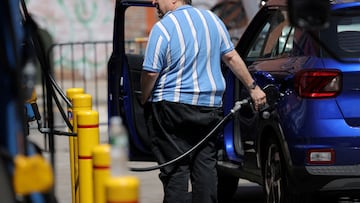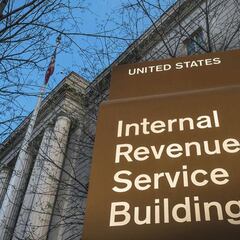Why have gas prices slowed down according to experts?
Motorists have suffered at the pump for much of 2022 but prices have fallen significantly as the demand for oil products has cooled.


The average price of a gallon of gasoline in the United States has fallen to $3.18, more than ten cents less than the price recorded at the same point last year. This suggests that, in terms of gas prices, the US has managed to undo the rapid price rises seen during 2022.
Record-breaking inflation pushed the average price of a gallon of regular unleaded to $5.02 in June, marking the first time that the average figure exceeded the $5-mark. However since then the price of gasoline has fallen dramatically, something that President Biden celebrated on Tuesday at the White House:
“Most Americans can see the progress driving down the street, finding relief at the pump as gas prices fall,” he said. “Gas prices are now lower than they were a year ago, and half the gas stations are selling gas at $3.09 or less. The most common price for gas stations across the country is $2.99.”
#GasPrices keep on dropping, with the national average down to $3.179/gal this morning, 13 cents lower than a week ago. 17 states where average prices are below $3, with six to join in the next week. Diesel stands at $4.878/gal, 16 cents lower than a week ago.
— Patrick De Haan ⛽️📊 (@GasBuddyGuy) December 14, 2022
For now, experts believe that this trend could continue in the coming weeks and provide financial relief ahead of Christmas.
Patrick De Haan, GasBuddy’s head of petroleum analysis, said: “It’s entirely possible the national average price of gasoline could fall under $3 per gallon by Christmas, which would be a huge gift to unwrap for motorists after a dizzying year at the pump.”
What is causing gasoline prices to fall?
Biden’s White House remarks centred on the release of the Bureau for Labor Statistics’ inflation report for November. The report found that inflation was running at a year-on-year rate of 7.1%, below most predictions.
This suggests that the rate of price increase across all sectors is slowing in general, but that is very different to an actual fall in prices, as has been seen with gasoline.
The price of crude oil is one of the main drivers of gas prices and it has fallen sharply since the summer. Between March and June the price of West Texas Intermediate crude oil traded above $120, but it has fallen to $71 in December.
When the economy is growing rapidly there is an expectation that oil and petroleum products will be in greater demand, because they are vital to manufacturing and distribution systems. But as the global economy has slowed, and a number of major countries slip into recession, demand for oil has dropped as economic output has fallen. That expectation of lower demand has pushed oil prices down, which, in turn, affects the cost of gasoline for consumers.
Related stories
This mechanism has helped to bring gas prices down for consumers, but the price of oil is based on myriad global factors. AAA warn that this situation could change at any moment and an increase in oil demand will bring about another rise in gas prices.
“We just have to continue watching oil prices because they remain volatile and as we saw in the spring, if oil prices spike to $100 per barrel, gas prices will follow suit,” said Devin Gladden, spokesperson for AAA. “A lot will depend on how the geopolitical tension continues to unfold throughout the winter.”

